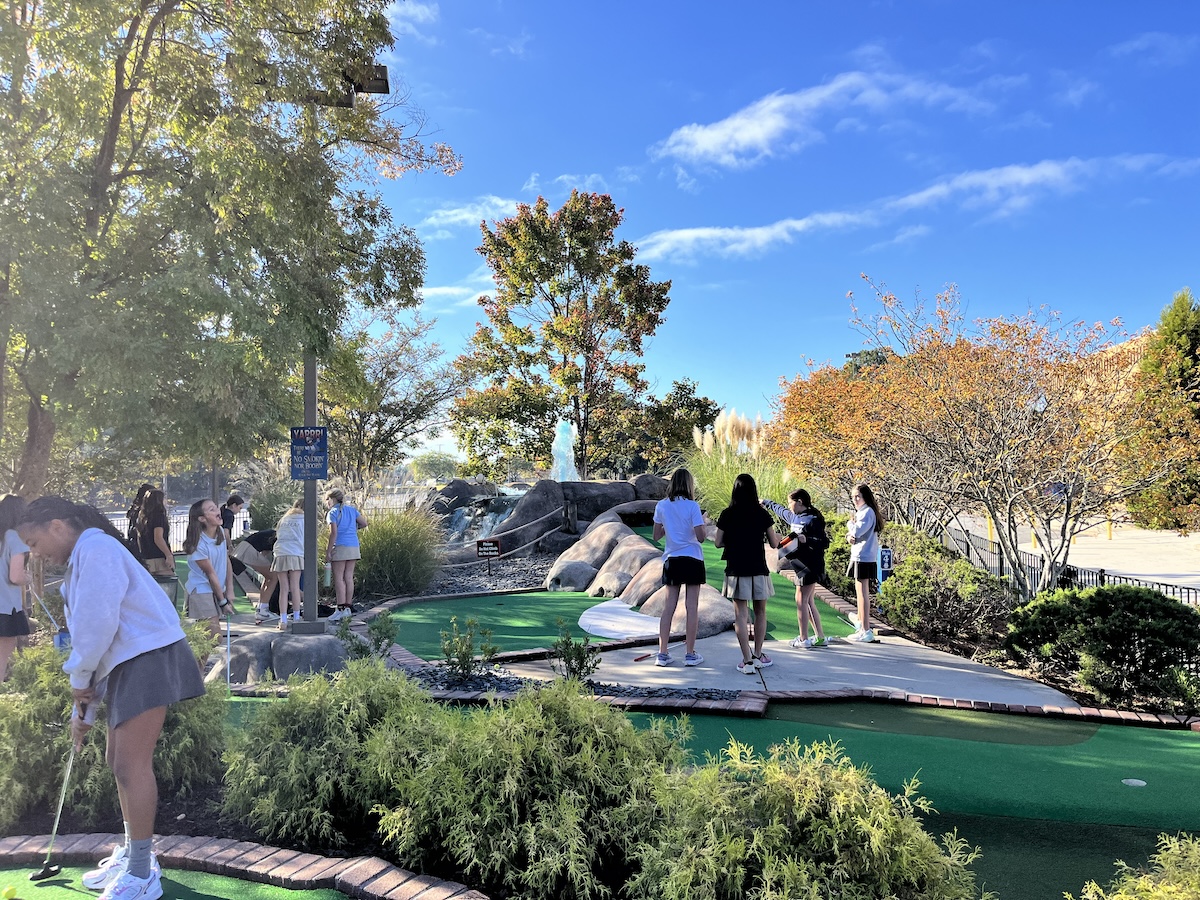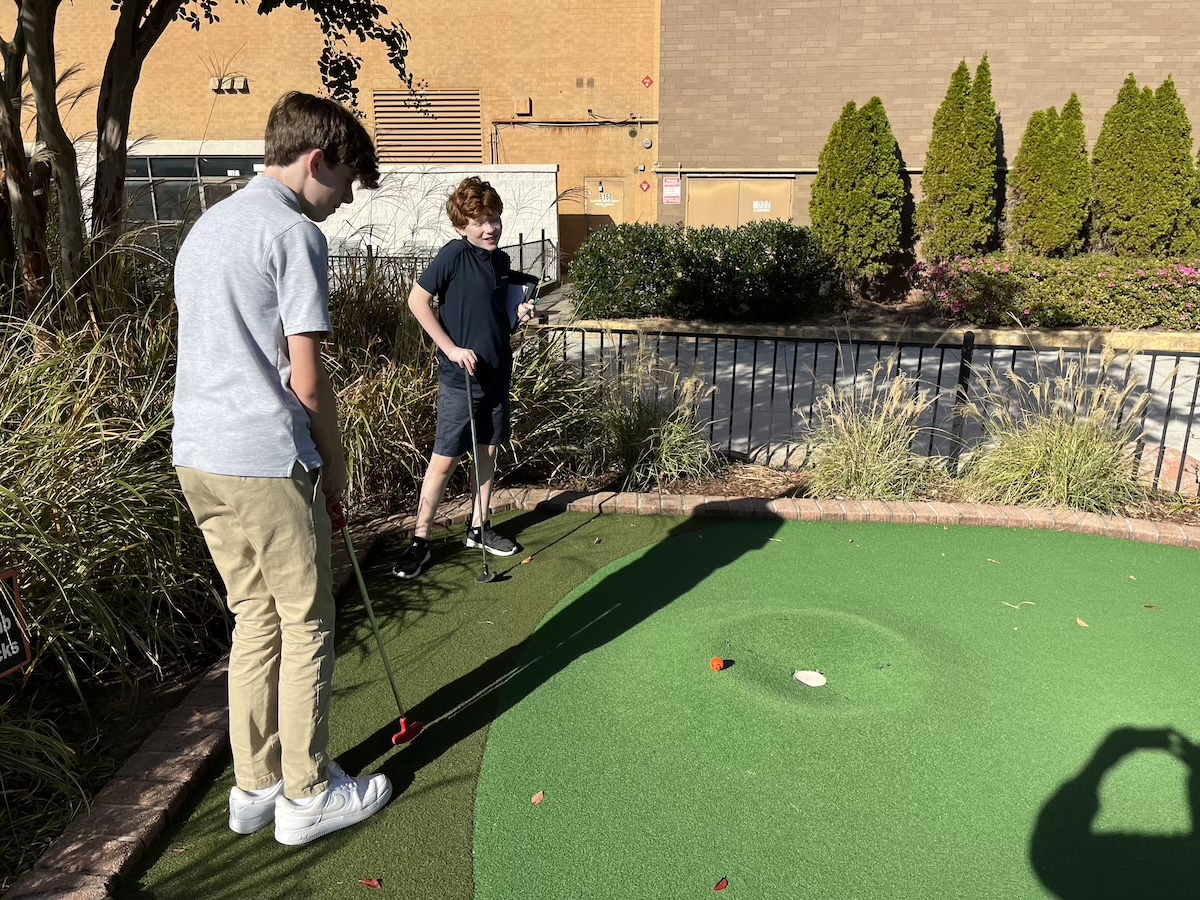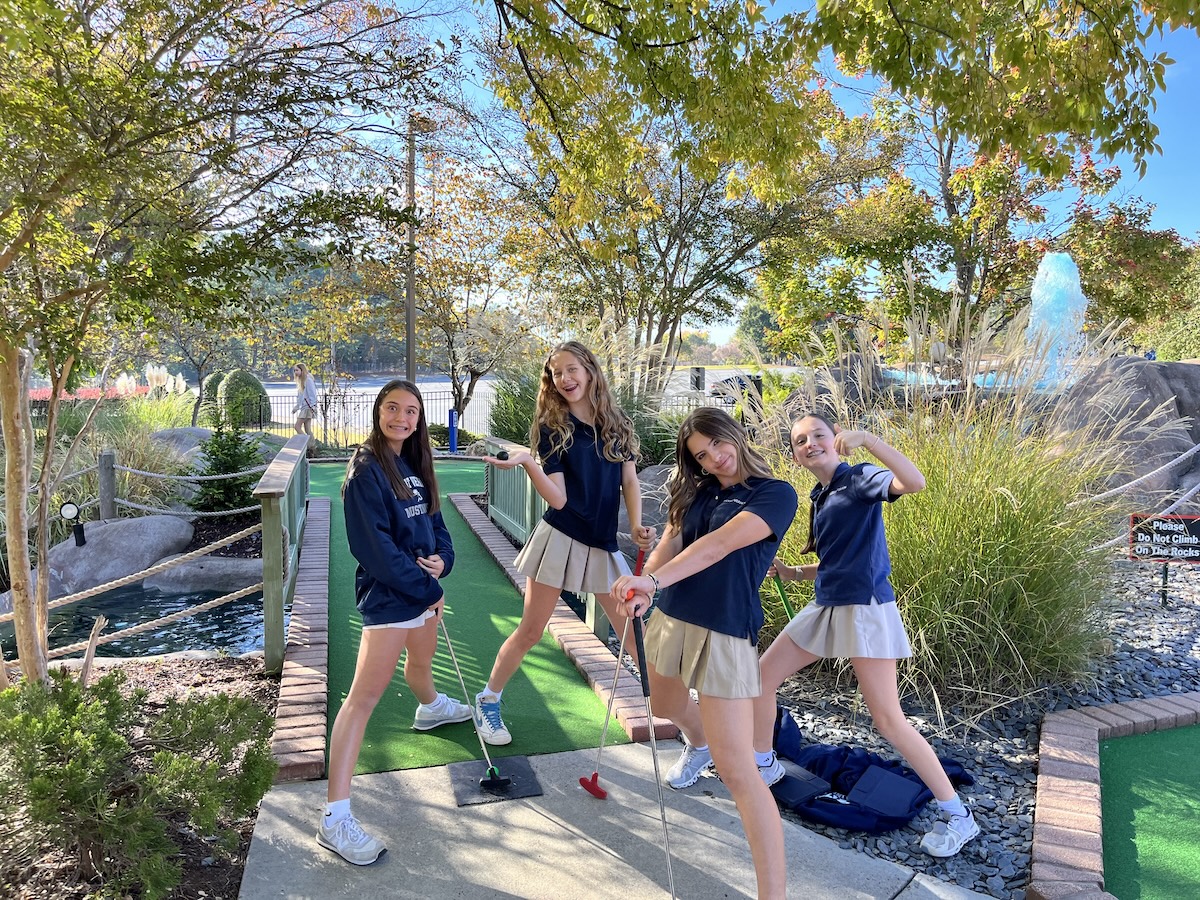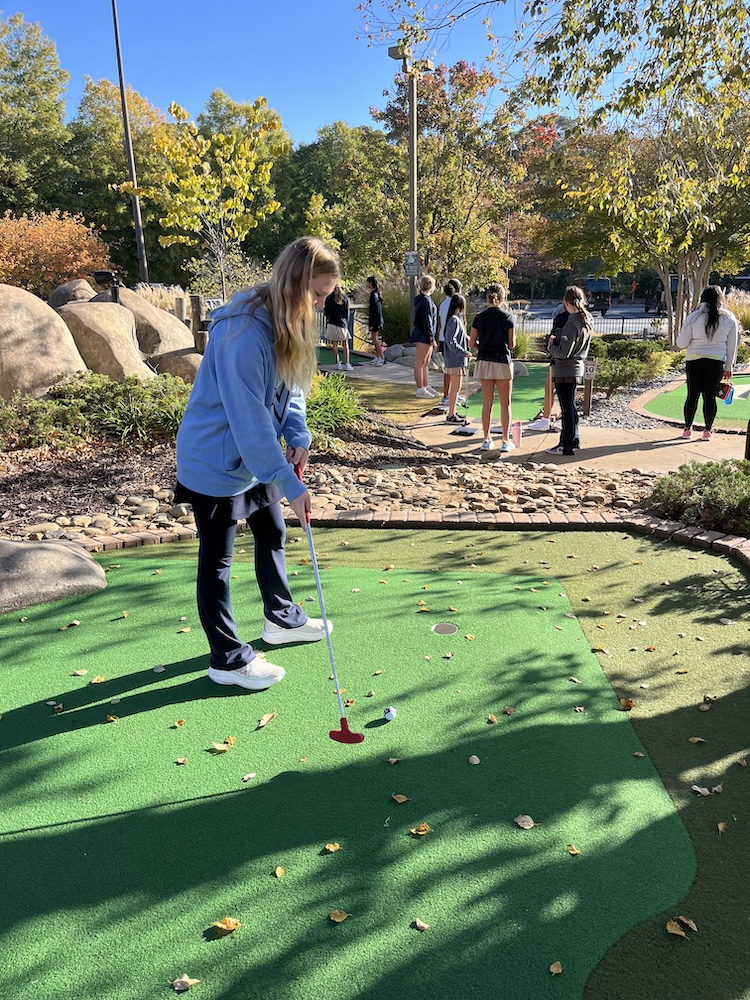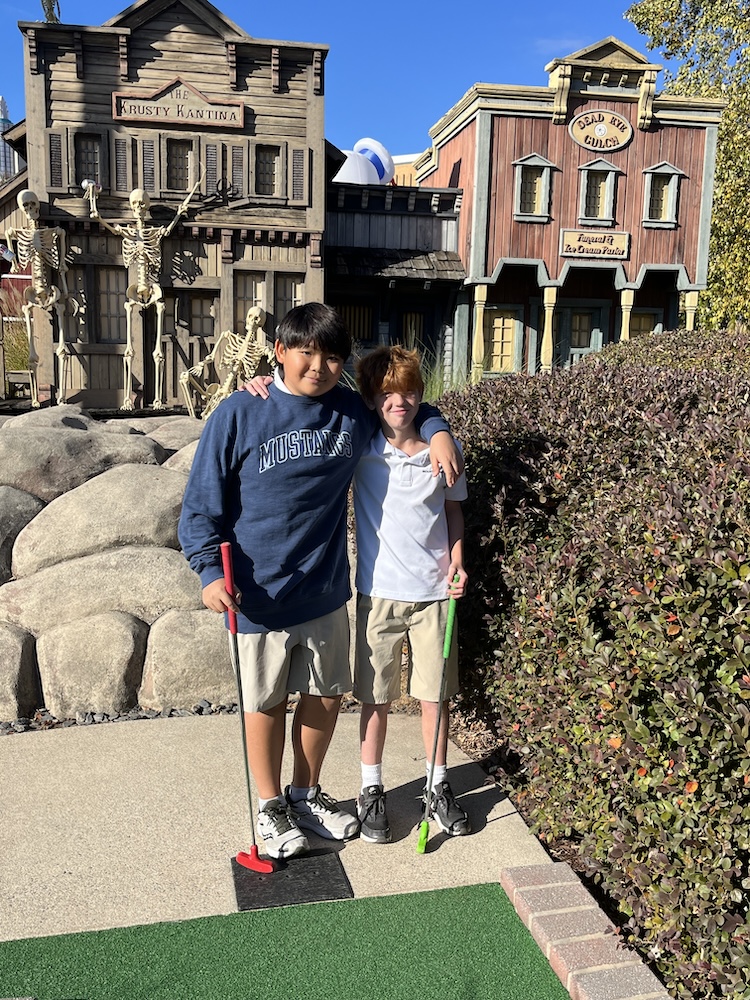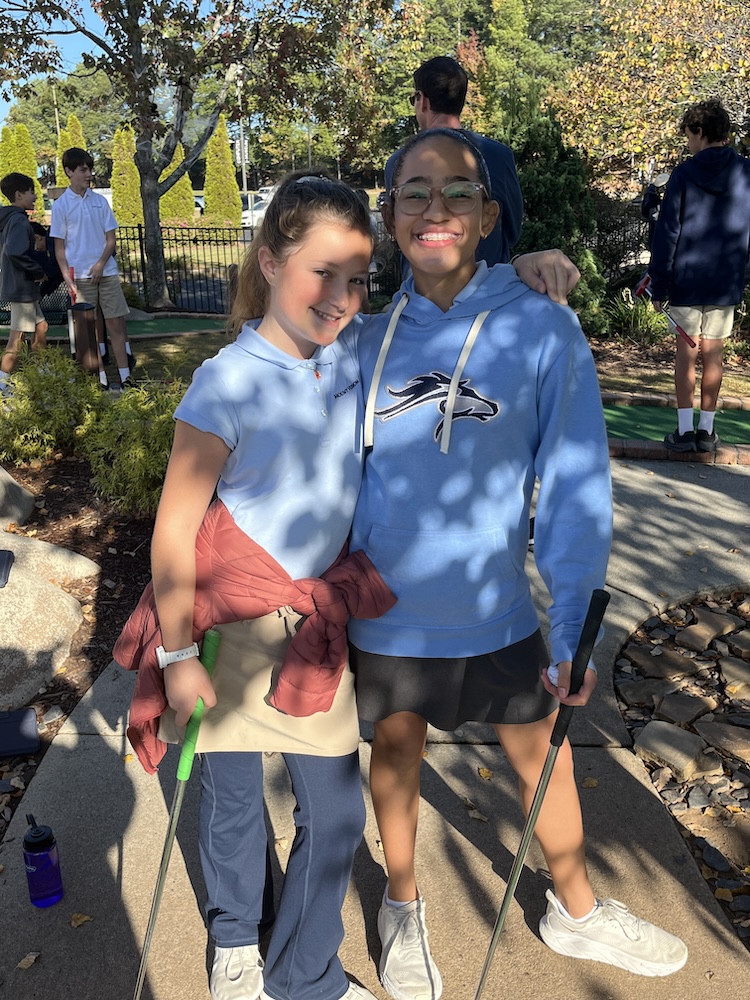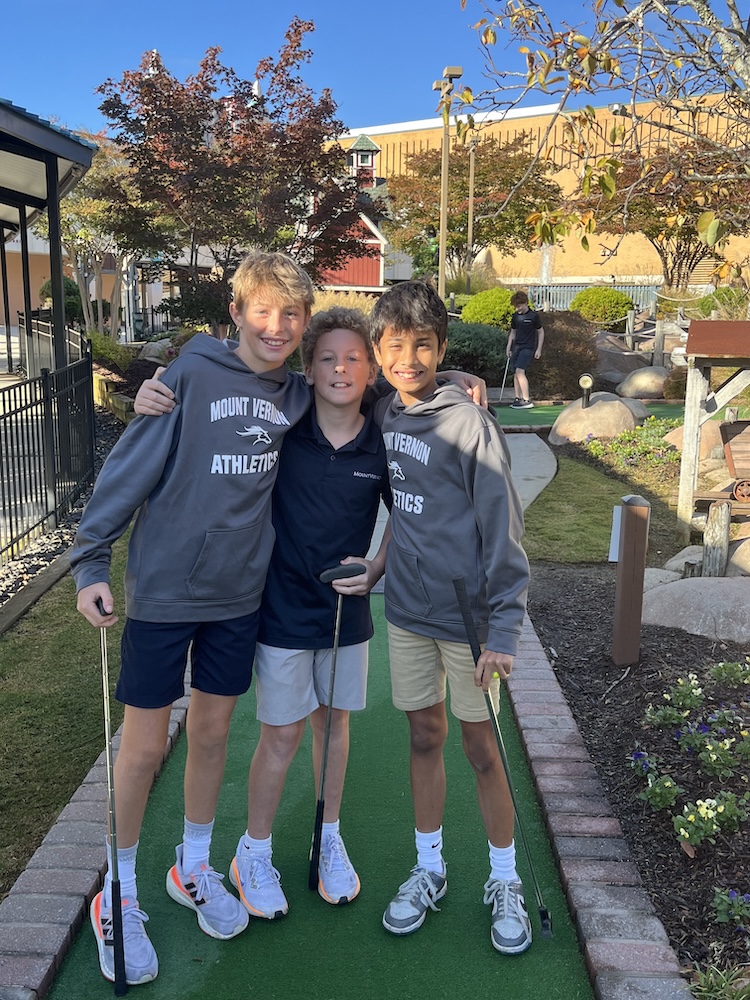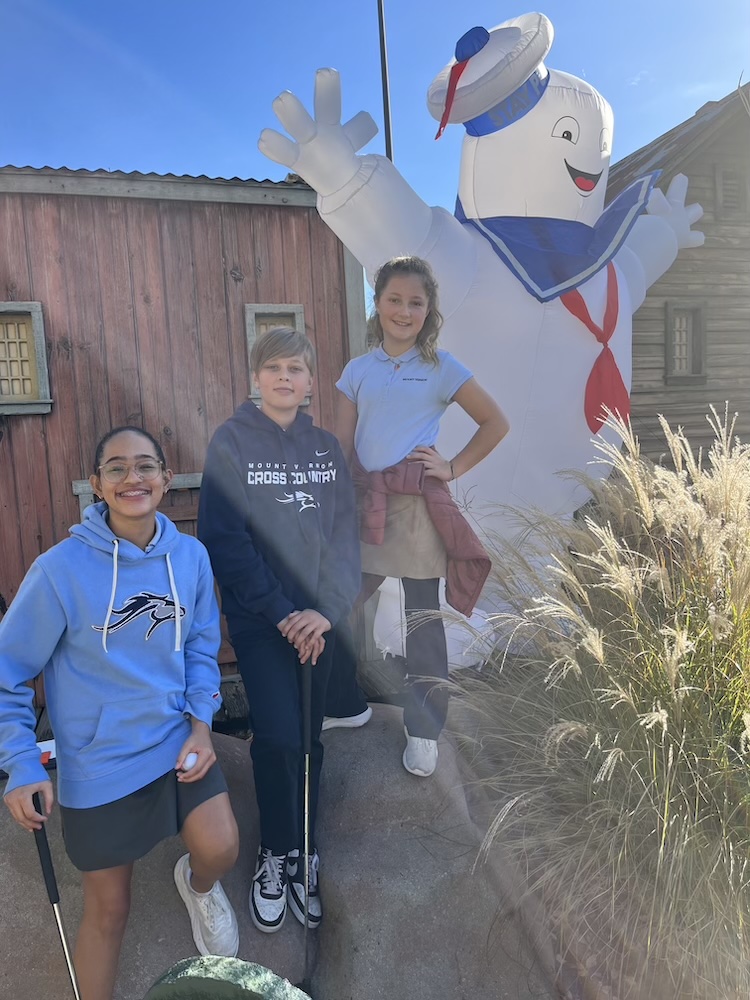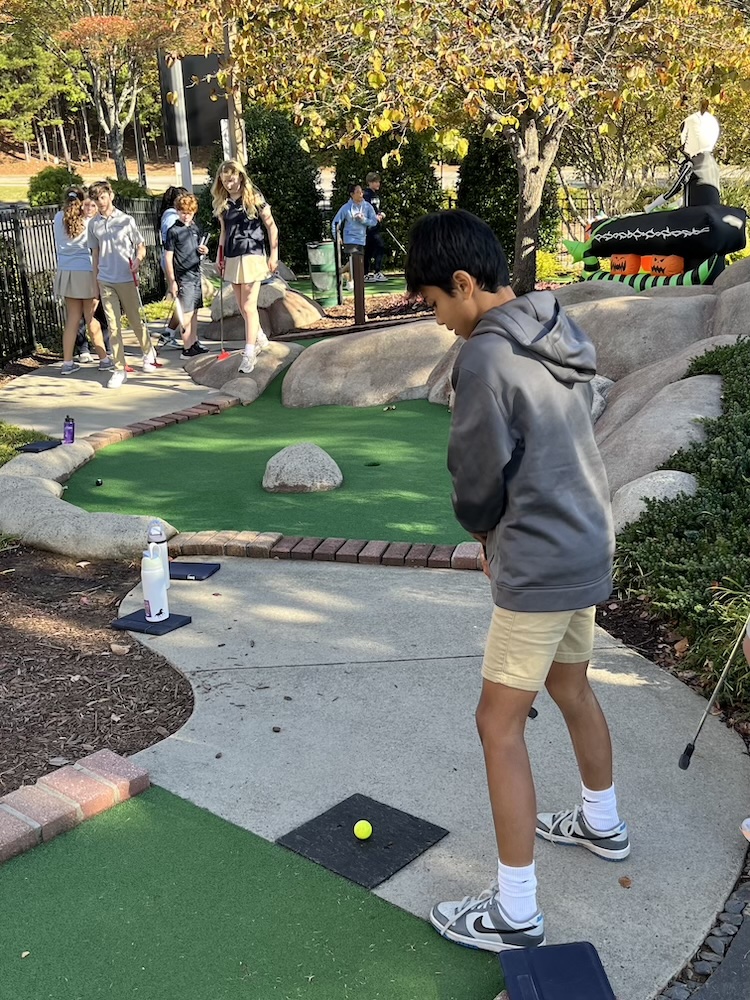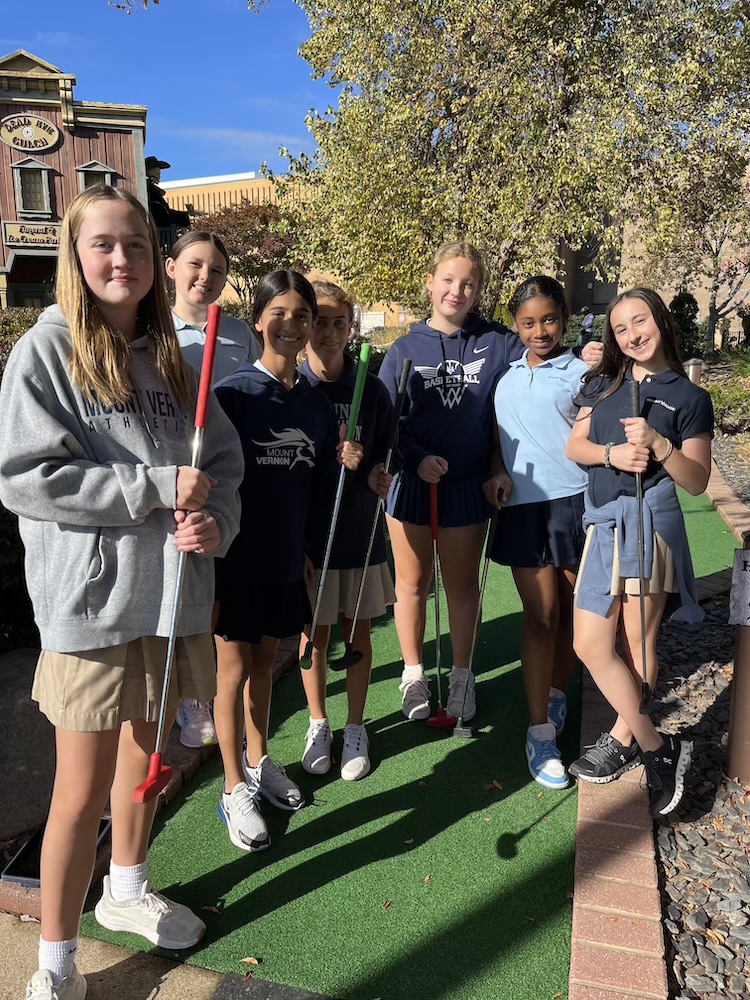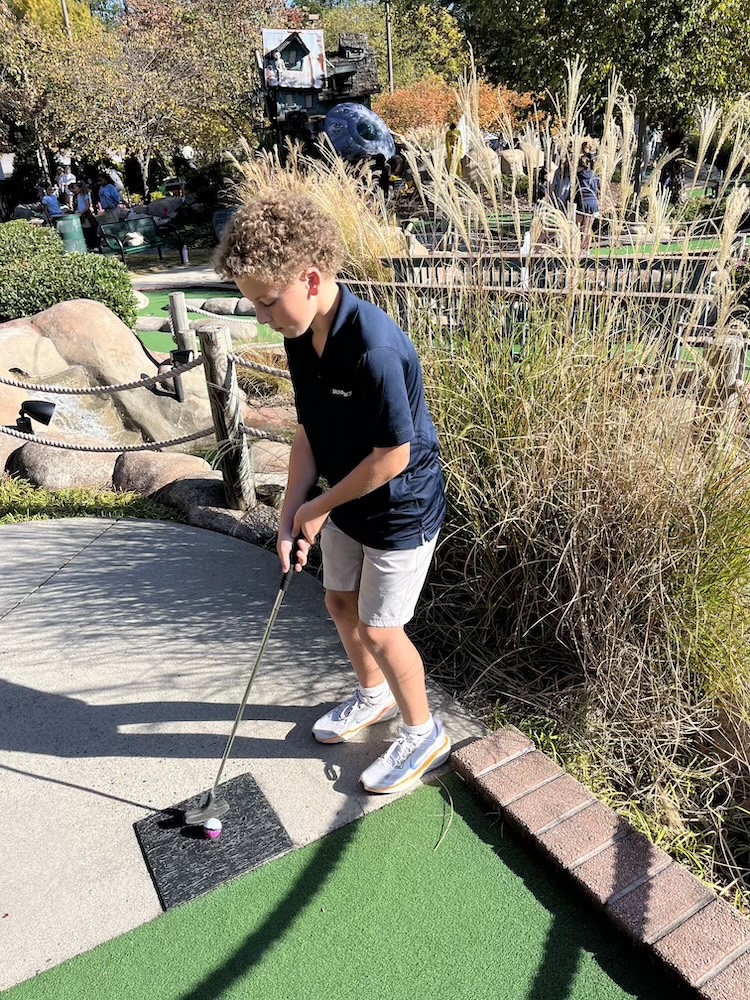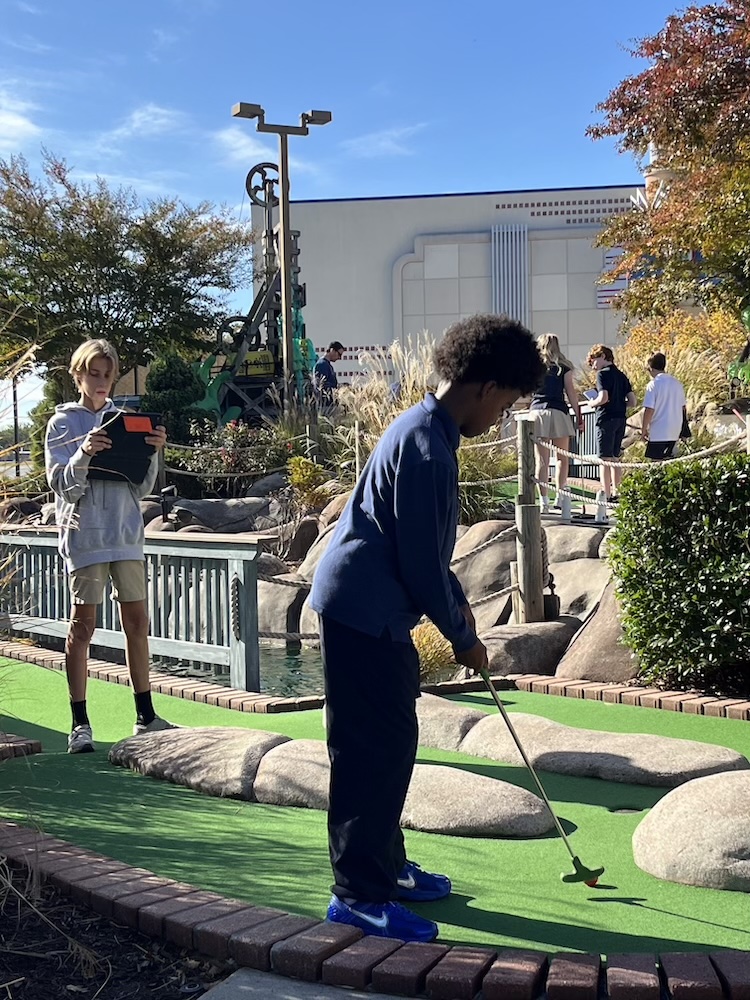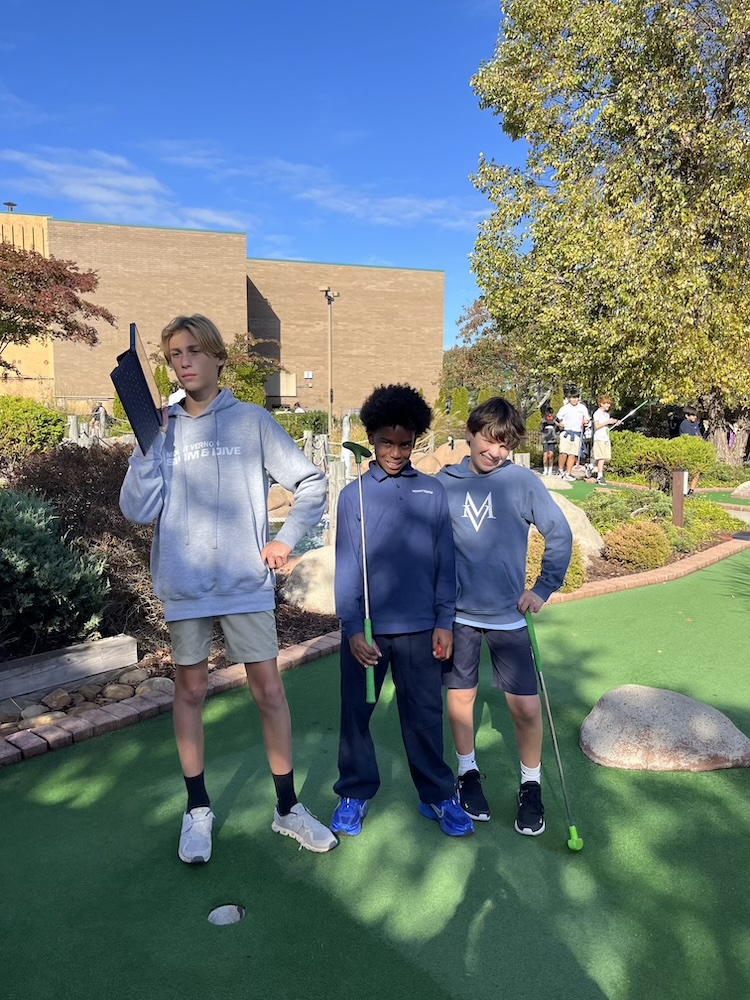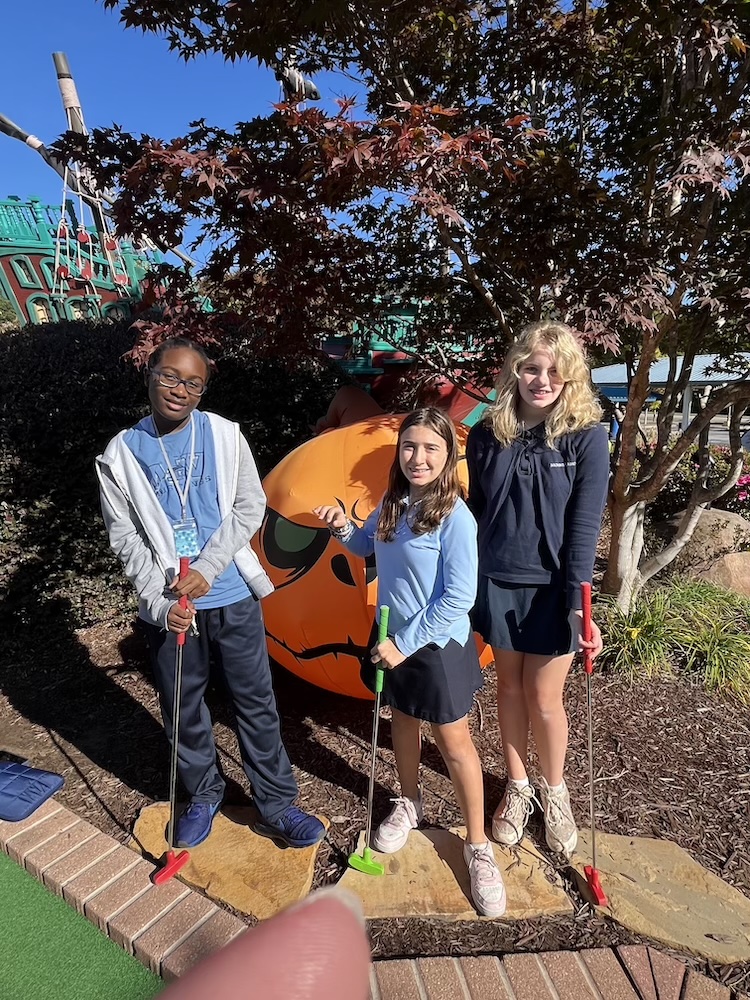As part of a transdisciplinary, grade-wide exploration, Grade 7 is starting a multifaceted project-based learning (PBL) journey exploring the possibilities of mobility in design. The end goal? Construct a mini-golf experience for the entire school community and debut it at Mustang Rally 2025. Over the next 8 months, this learning experience will help students see how mathematical principles, scientific reasoning, and even storytelling come to life during this real-world design project.
Inspiration from the Field
To kick off the project, Grade 7 had an expedition to the Fringe Miniature Golf course in Roswell, GA, designed to spark students’ imaginations and provide firsthand exposure to the possibilities of mobility in design. Students observed layout, flow, and structure intricacies across 36 unique golf holes, documenting insights and gathering inspiration for their own mini-golf course designs. The expedition marked the beginning of an ongoing process that will guide students in translating these observations into tangible designs.
Armed with iPads, notebooks, and fresh perspectives, students returned with ideas ready to fuel their collaborative project. This field trip is just one step in a multi-phase project dedicated to exploring and re-imagining the design principles of mini-golf through the lens of movement and mobility.
Throughout this experience, students will exercise creativity, collaboration, and critical thinking, using Mobility as both a physical concept and a metaphor for innovative learning. Head of Grade 7 David Song shared, “We eagerly anticipate the final designs students will present in May and celebrate the insights, resilience, and creative problem-solving they will develop along the way.”
From Concept to Creation
The Mini-Golf Mobility Project will take shape over several months, allowing students to explore a variety of themes and concepts, ultimately culminating in an interactive, student-designed mini-golf course to be showcased in the spring.
Here’s the project timeline:
- Team Collaboration & Research (October): Students form teams to research golf design principles, exploring how movement and interactivity are incorporated into miniature golf courses.
- Digital Prototyping with Minecraft (November & December): Students use Minecraft to create virtual golf hole prototypes, focusing on flow and design experimentation.
- Community Voting (January): The community votes to select 18 holes from the digital prototypes, integrating community engagement into the project.
- Physical Construction with Recycled Materials (February & March): Students construct their golf hole designs using recycled materials, transitioning from virtual to physical builds.
- Testing & Feedback (April): Fourth and fifth graders test the course and provide feedback, allowing students to refine their designs based on peer insights.
- Culminating Competition (May): The project concludes with a Mini-Golf Course Competition at Mount Vernon’s annual Mustang Rally, showcasing the students’ final designs and celebrating their journey.
Learning Objectives: Math, Science, Humanities, and Beyond
The theme of Mobility will be threaded through every part of the design experience as they create a tabletop mini-golf course. Students will be encouraged to delve deeply into how movement and flow manifest across disciplines—from the calculated dynamics of physics and mathematics to creative narratives in the humanities. Some of the key learning areas include:
-
Mathematics: Students work with scaled figures, cost analysis, calculations, par determination, and spatial design.
Humanities: They explore topics such as water conservation, scriptwriting for commercials, and the evolution of mini-golf.
Science: In ecology comparisons, grass growth studies, and cellular design simulations, students learn to observe and apply scientific principles.
World Languages: Students research international monuments and mini-golf courses, adding a cultural dimension to their designs.
Arts & Design: Through topography, marketing materials, and printed publications, students enhance the aesthetics and promotional aspects of their courses.
Building Creativity, Collaboration, and Curiosity
At Mount Vernon, project-based learning experiences like these affirm our commitment to inspiring students to think critically and engage deeply. This mini-golf project exemplifies the school’s vision to foster discovery, nurture talent, and cultivate the innovators of tomorrow.
